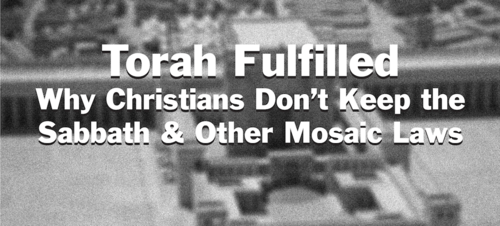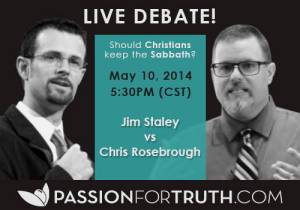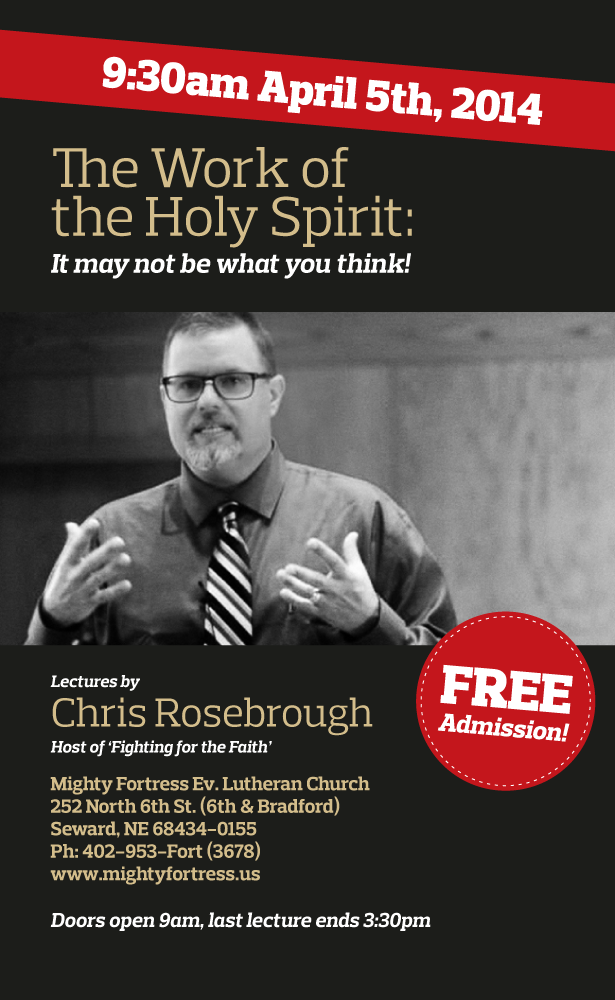Modern and Postmodern Liberals (Emergents) and their higher-critic and deconstructionist co-belligerents have an almost obsessive preoccupation with undermining, impugning, and maligning God’s Word. They incessantly attack the inerrancy, historicity and sufficiency of scripture and their attacks are getting bolder by the day. These people appear driven to reduce the Bible into a mere human product that is nothing more than man-made mythological narratives. Stories of pristine gardens, Adam and Eve, forbidden fruit, a world-wide flood, the ark, the destruction of Sodom and Gomorra, and a prophet being swallowed by a big fish are too silly and childish to be believed as actual historical events by this growing Liberal resurgence.
Before you fall for these so-called progressives and their post-modern re-imaginations of the scriptures you should consider Jesus’ opinion and views of the Bible. As you will see, Jesus had much to say about the scriptures and His statements reveal his assumptions regarding the Old Testament texts as well as the veracity of the stories recording in them.
Jesus’ Credentials
Before we look at Jesus’ opinion of the scriptures it would be prudent for us to first be reminded of Jesus’ credentials and His authority regarding the scriptures.
When we examine the eyewitness testimony concerning Jesus that is recorded for us in the contents of the four biographies (Gospels) of the New Testament we learn that Jesus Christ claimed to be none other than the One True God in human flesh. Any nut or lunatic can claim to be God but proving such a claim is a whole other issue. Fact is, Jesus proved His claims to deity by raising Himself from the dead three days after He was crucified under Pontius Pilate.[1] The men who authored the New Testament documents were also eyewitnesses of Jesus’ life, teachings, miracles and His bodily resurrection from the dead.
Since Jesus proved His claim to being the One True God in human flesh by raising Himself from the dead, there is no greater authority, living or dead on the subject of the Bible than Jesus. There is no scientist, modern scholar or Biblical critic, regardless of the number of degrees that he or she may hold who can speak with greater authority on the subject of the Word of God than Jesus Christ. Therefore, if you call yourself a Christian or a Christ-Follower then you would do well to pay close attention to what Jesus believed and taught regarding both the Old and New Testament Scriptures and bring your thinking and convictions in line with His.
Jesus’ View of the Old Testament, Creation, Adam and Eve
What exactly did Jesus believe and teach regarding the Old Testament stories? Did Jesus consider them to be mere man-made mythological stories or did He believe them to be accurate accounts of real events that took place in real history? We’ll answer these questions by first reviewing Jesus’ thoughts regarding the stories concerning Adam and Eve.
In Matthew 19:3-6, the eyewitness biographer records this exchange between Jesus and the Pharisees:
Matt. 19:3-6: And Pharisees came up to him and tested him by asking, “Is it lawful to divorce one’s wife for any cause?” He [Jesus] answered, “Have you not read that he who created them from the beginning made them male and female, and said, ‘Therefore a man shall leave his father and his mother and hold fast to his wife, and the two shall become one flesh’? So they are no longer two but one flesh. What therefore God has joined together, let not man separate.”
The topic that the Pharisees were testing Jesus on was marriage and divorce and Jesus’ answer tells us a lot about His view of the book of Genesis. First, Jesus points the Pharisees to Genesis as if it alone provides the authoritative answer to their trick question. Then Jesus quotes Genesis 1:27 as if it literally meant what it said, “God created him; male and female he created them”. Then Jesus quotes Genesis 2:24 as if it literally meant what it said, “Therefore a man shall leave his father and his mother and hold fast to his wife, and they shall become one flesh...”
There was no equivocation on Jesus’ part and no hint that He secretly believed that the opening pages of Genesis contained a man-made poetic creation myth or that it was historically inaccurate. In fact, Jesus’ answer makes it perfectly clear that He was a creationist (this should come as no surprise to anyone because Jesus is the God who is revealed in the Old Testament). Furthermore, Jesus' answer also reveals that He believed that Adam and Eve were literally the first two people that He created.
Challenge Questions: If you call yourself a Christian or a Christ-Follower yet don’t believe that the story of Adam and Eve is historically true or accurate, what authority are you basing this belief on? Is it right for you to call yourself a Christian or a Christ-Follower when your view of the scriptures is at odds with Jesus’ views?
Adam and Eve are not the only people that Jesus believed were real historical people and whose stories were accurately documented in the Book of Genesis. In Matthew 23:34-35 Jesus affirms the historicity of Abel and his murder at the hand of his brother Cain.
Matt. 23:34-35: Therefore I send you prophets and wise men and scribes, some of whom you will kill and crucify, and some you will flog in your synagogues and persecute from town to town, so that on you may come all the righteous blood shed on earth, from the blood of innocent Abel to the blood of Zechariah the son of Barachiah, whom you murdered between the sanctuary and the altar.
If the story of Cain and Abel were mere man-made myth then Jesus’ claim that he would hold the Pharisees accountable for the blood of the righteous from Cain to Zechariah would be simply meaningless. After all, how do you hold someone accountable for mythological blood that was never actually shed because the person who supposedly bled it never historically existed?
Challenge Point: Having a lesser view of scripture and denying that Adam and Eve were the literal first human beings created by God, denying that Cain and Abel existed and that their stories are accurately recorded in Genesis turns Jesus into a moronic buffoon. After all, according to the eyewitnesses, Jesus actually believed the Genesis accounts to be historically accurate and true. If they are not true then Jesus is not God in human flesh. Instead, Jesus was nothing more than a tragically stupid and deceived religious nut job. The same can be said about Jesus’ view of Noah and the worldwide flood, Sodom and Gomorra, Abraham, Isaac and Jacob, and Jonah and the big fish.
What Did Jesus Believe About Noah and the Flood?
Matt. 24:36-39: “But concerning that day and hour no one knows, not even the angels of heaven, nor the Son, but the Father only. For as were the days of Noah, so will be the coming of the Son of Man. For as in those days before the flood they were eating and drinking, marrying and giving in marriage, until the day when Noah entered the ark, and they were unaware until the flood came and swept them all away, so will be the coming of the Son of Man.
This passage makes it unmistakably clear that Jesus believed that Noah was an actual historical person who built an ark according to Jesus’ instructions and that the world was destroyed by the flood just as it is recorded for us in Genesis. Jesus even likens His imminent second coming to the worldwide flood that deluged the world in the time of Noah. The implications of this logic are impossible to miss. If the flood story is just a myth instead of an actual historical event as Jesus clearly believed it to be then Jesus is a liar instead of God in human flesh and you might as well believe in the Easter Bunny because Jesus isn’t really coming back to judge the living and the dead.
What Did Jesus Believe About Sodom & Gomorra?
Matt 11:23-24: And you, Capernaum, will you be exalted to heaven? You will be brought down to Hades. For if the mighty works done in you had been done in Sodom (Genesis 19), it would have remained until this day. But I tell you that it will be more tolerable on the day of judgment for the land of Sodom than for you.”
In this passage Jesus confirms the historicity of the Genesis story regarding the destruction of Sodom and Gomorra and tells the people of Capernaum that the day of judgement will be more tolerable for Sodom than it will be for them. These are empty words that Jesus spoke if Sodom and Gomorra never existed and were not destroyed by God because of their wickedness.
What Did Jesus Believe About Abraham, Issac and Jacob?
Matt. 22:29-33: But Jesus answered them, “You are wrong, because you know neither the Scriptures nor the power of God. For in the resurrection they neither marry nor are given in marriage, but are like angels in heaven. And as for the resurrection of the dead, have you not read what was said to you by God: ‘I am the God of Abraham, and the God of Isaac, and the God of Jacob’? He is not God of the dead, but of the living.” And when the crowd heard it, they were astonished at his teaching.
In this passage Jesus not only affirms the historicity of Abraham, Issac and Jacob, He even claims that they are still living. To deny the historicity of any these men is to make Jesus out to be a liar!
What Did Jesus Believe About Jonah and the Great Fish?
Certainly Jesus was smart enough and progressive enough to know that the absurd story of Jonah and the great fish was nothing more than a mythological fish story and cautionary tale. NOT ON YOUR LIFE! According to the eyewitnesses to Jesus’ life, Jesus actually believed the story of Jonah and the great fish was a literal, historical event.
Matt. 12:39-41: But he answered them, “An evil and adulterous generation seeks for a sign, but no sign will be given to it except the sign of the prophet Jonah. For just as Jonah was three days and three nights in the belly of the great fish, so will the Son of Man be three days and three nights in the heart of the earth. The men of Nineveh will rise up at the judgment with this generation and condemn it, for they repented at the preaching of Jonah, and behold, something greater than Jonah is here.
Not only did Jesus believe that Jonah was literally three days and three nights in the belly of the great fish, He ties His own resurrection from the dead to this event. Furthermore, Jesus said that the men of Ninevah, who repented at the preaching of Jonah will rise up to condemn the people of Jesus’ generation because they didn’t repent despite the fact that someone greater than Jonah was calling them to repentance. Again these would be rather silly and empty words if the Jonah story was a mere man-made mythological narrative.
What can we conclude then about Jesus’ view of the Old Testament scriptures? Plain and simple, Jesus believed the Old Testament to be the inspired, inerrant, historically accurate, literal Word of God. But what about the New Testament scriptures? Thankfully, Jesus had something to say about them as well.
Jesus Said That God is Commanding Us Through His Written Word
Not only did Jesus affirm the historicity of the Old Testament historical narratives but He also affirmed that what is written in the Old Testament was given by God. Jesus makes it unambiguously clear that through the scriptures God Himself is speaking to us and He expects us recognize the fact that God is the one speaking in the Biblical texts. In the following passage, note who Jesus says is the authority behind the written texts of scripture.
Mark 7:1–13: “Now when the Pharisees gathered to him, with some of the scribes who had come from Jerusalem, they saw that some of his disciples ate with hands that were defiled, that is, unwashed. (For the Pharisees and all the Jews do not eat unless they wash their hands properly, holding to the tradition of the elders, and when they come from the marketplace, they do not eat unless they wash. And there are many other traditions that they observe, such as the washing of cups and pots and copper vessels and dining couches.) And the Pharisees and the scribes asked him, “Why do your disciples not walk according to the tradition of the elders, but eat with defiled hands?” And he said to them, “Well did Isaiah prophesy of you hypocrites, as it is written, “‘This people honors me with their lips, but their heart is far from me; in vain do they worship me, teaching as doctrines the commandments of men.’
You leave the commandment of God and hold to the tradition of men.
And he said to them, “You have a fine way of rejecting the commandment of God in order to establish your tradition! For Moses said, ‘Honor your father and your mother’; and, ‘Whoever reviles father or mother must surely die.’ But you say, ‘If a man tells his father or his mother, “Whatever you would have gained from me is Corban”’ (that is, given to God)— then you no longer permit him to do anything for his father or mother, thus making void the word of Godby your tradition that you have handed down. And many such things you do.””
Jesus makes it very clear in this passage that God expects people to recognize that He is the authority behind all of scripture. Despite the fact that Moses was the man who wrote down the text Jesus cites, Jesus makes it clear that God was the one speaking and commanding men through the text that Moses wrote.
Challenge Point: Why would anyone who calls themselves a Christian hold or entertain a view of scripture that is different than Jesus' view regarding the ultimate authority behind the Biblical texts?
Jesus’ Stamp of Approval for the New Testament
The Apostle John, in his eyewitness biography records Jesus as promising His disciples that the Holy Spirit will bring to mind (miraculous total recall) all the things that Jesus said and taught them.
John 14:25-26: “These things I have spoken to you while I am still with you. But the Helper, the Holy Spirit, whom the Father will send in my name, he will teach you all things and bring to your remembrance all that I have said to you.
Jesus literally promised the disciples that they would receive miraculous memory recall in their teaching ministries. This miraculous memory recall applied not only to the words that they spoke about Jesus but also the words that they wrote about Jesus. In fact, in Jesus’ High Priestly Prayer which is recorded for us by the eyewitness John, Jesus prays not only for His disciples but for all who will believe in Jesus through their word.
John 17:17-21 Sanctify them in the truth; your word is truth. 18 As you sent me into the world, so I have sent them into the world. And for their sake I consecrate myself, that they also may be sanctified in truth.
“I do not ask for these only, but also for those who will believe in me through their word, that they may all be one, just as you, Father, are in me, and I in you, that they also may be in us, so that the world may believe that you have sent me.
Notice that these verses make it clear that Jesus put His miraculous stamp of divine approval on the words of the Apostles. Therefore, Jesus believes that the New Testament (this is the only place where we find the words of the Apostles today) is as inspired and every bit as much the miraculously inerrant and authoritative Word of God as the Old Testament. This is why the primary criterion for a document to be included in the New Testament was whether or not it was Apostolic. If you’re unsure about this then read the writings of the early church fathers. They quote the New Testament documents extensively and authoritatively. In fact, if we had no extant copies of the New Testament we could still reproduce it with the exception of 11 verses from the writings of the early church fathers that pre-date 212 AD. (This is long before the Council of Nicaea and is only a little over a century from the completion of the New Testament)
Jesus Christ is the greatest expert on the Word of God and the scriptures who ever lived. Jesus is none other than the One True God in human flesh and proved this by raising Himself from the dead only three days after he was crucified for our sins under Pontius Pilate. Jesus had the highest view of scripture that anyone could have and because of His credentials as God, He has the unique position of being able to speak on this subject with an authority that no one else could ever hope to possess. If you call yourself a Christian or a Christ-Follower it is spiritually dangerous and perilous for you to hold a lesser view of scripture than Jesus Christ. Furthermore, Jesus himself warns us that holding a lesser view of scripture is out of character for anyone who claims to be a Christian. Jesus said:
John 14:23-24: “If anyone loves me, he will keep [guard] my word, and my Father will love him, and we will come to him and make our home with him. Whoever does not love me does not keep [guard] my words.
In other words, if you claim to love Jesus and be a follower of Jesus and you do not keep or guard his word then you are deceiving yourself because only those who hate Jesus do not keep and guard His word. Furthermore, Jesus says that it is the children of the devil who do not hear and believe His word.
John 8:43-47: Why do you not understand what I say? It is because you cannot bear to hear my word. You are of your father the devil, and your will is to do your father’s desires. He was a murderer from the beginning, and has nothing to do with the truth, because there is no truth in him. When he lies, he speaks out of his own character, for he is a liar and the father of lies. But because I tell the truth, you do not believe me. Which one of you convicts me of sin? If I tell the truth, why do you not believe me? Whoever is of God hears the words of God. The reason why you do not hear them is that you are not of God.”
Who will you believe, trust and follow? Will you follow the so-called progressives and the Post-Modern Liberals (Emergents) or will you trust and believe Jesus and refuse to have an opinion of the scriptures that is lesser than His?
To end this article, I will let Jesus have the last word.
“Heaven and earth will pass away, but my words will not pass away.” - Matt 24:35
χάρις ἔλεος εἰρήνη σοι,

@PirateChristian
---
"1 If you do not believe that Jesus Christ is the One True God in human flesh and that he rose bodily from the grave three days after he was crucified for your sins then you are not a Christian even if you attend a church that prays to Jesus, feeds the poor or recycles religiously in order to save the planet.













